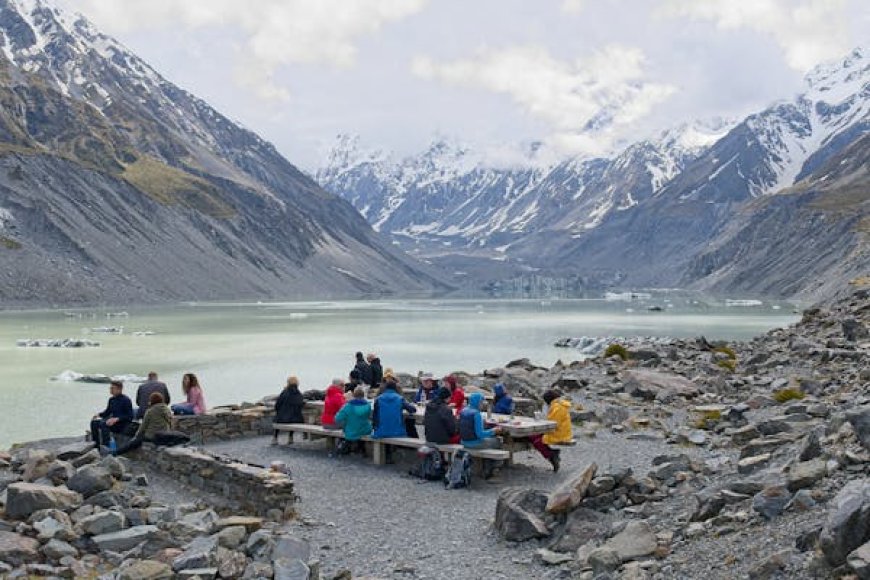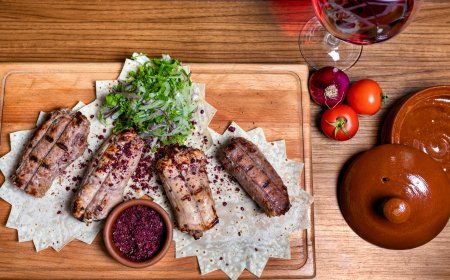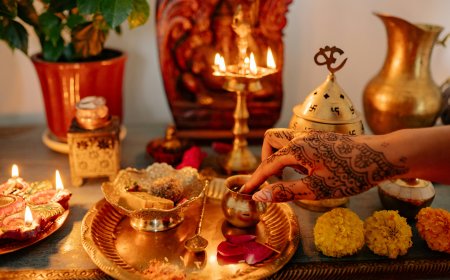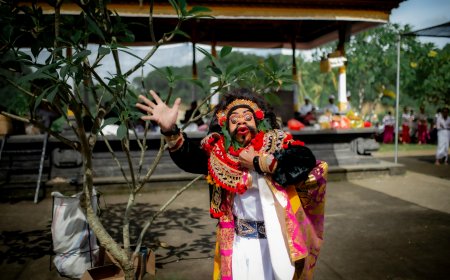Learn about the culture and traditions of the Maori people in New Zealand

Maori culture represents an integral part of New Zealand's rich cultural and historical heritage, reflecting deep values and ancient traditions spanning several centuries. The Maori people are of Polynesian origin, the indigenous inhabitants of New Zealand who arrived on these islands centuries ago. Maori culture is renowned for its unique heritage and distinctive rituals, blending spirituality, art, and a profound connection with nature.
Maori culture is characterized by deep respect for the land, environment, and spirituality. They consider the land (tīna) sacred and coexist with it as an integral part of their daily lives. This spirituality manifests in rituals and ceremonies celebrated by Maori tribes, such as welcoming ceremonies (pōwhiri), grand feasts (hāngi), and religious celebrations.
The Maori language is characterized by its beauty and richness, an essential part of their cultural identity. The Maori people strive to preserve their language and pass it on to future generations, with the New Zealand government supporting their efforts through educational and cultural programs.
In addition to language, Maori culture is distinguished by traditional arts such as wood carving and weaving, which express the heritage and identity of the Maori in a unique way. These arts serve as a means of documenting history and conveying cultural wisdom and values.
Despite the challenges faced by the Maori throughout history, they remain resilient and enduring. Their culture is a source of pride and honor for all New Zealanders, enriching the cultural and social landscape of the country.
Maori History
Maori culture is an integral part of the rich history and cultural diversity of New Zealand. The origin of the Maori people can be traced back to the Polynesian migration that began centuries ago, as groups of Polynesians embarked on exploratory voyages across the Pacific Ocean in search of new lands for settlement. These groups headed south and eventually reached what is now known as New Zealand.
The initial phase of Polynesian arrival in New Zealand occurred between the ninth and eleventh centuries AD, with groups believed to have arrived on small boats made of wood and thatch. Their voyages were perilous adventures across the Pacific Ocean, but they succeeded in reaching these remote islands and began to settle them.
Upon the Maori's arrival in New Zealand, they began to explore the islands and identify suitable areas for settlement. They established their communities along the coasts and in inland regions, building their homes, temples, and farms.
Over time, Maori culture evolved and deepened their ties with the land and environment. They relied on agriculture, fishing, and gathering wild resources as means of sustenance and prosperity. They established trade relations with other tribes, exchanging resources and goods, which contributed to the economic and cultural prosperity of Maori communities.
Maori identity was formed over many centuries through interactions with the environment and adaptation to challenges. Many factors influenced their history, including the arrival of European settlers in New Zealand in the seventeenth century, leading to radical changes in Maori social, economic, and cultural life.
Among the challenges faced by the Maori after the arrival of European settlers were land loss, resource depletion, and population decline due to diseases and conflicts. Their culture, language, and traditional way of life were threatened, and they experienced a period of suppression and identity loss.
Over time, the Maori people made great efforts to preserve and promote their identity, culture, and heritage. Maori rights were increasingly recognized in law and politics, and a variety of programs were established to support and enhance Maori culture, language, and education for future generations.
Today, the Maori people are a vital part of New Zealand's national identity, actively contributing to making it one of the most culturally diverse countries in the world. Thanks to their ongoing efforts, Maori heritage and culture continue to thrive and evolve, fostering understanding and peaceful coexistence among all segments of New Zealand society.
Core Values in Maori Culture
Maori culture is characterized by a set of values and principles that form the basis of their daily lives, guiding their thinking and behavior. These values and principles reflect their deep heritage and close relationship with the land, nature, and each other. In this article, we will explore the core values in Maori culture and their role in shaping their identity and guiding their lives.
1. Whanaungatanga (Integration and Belonging):
Social and familial relationships are essential in Maori culture. The value of integration and belonging encourages building strong and enduring relationships within the community and enhancing a sense of belonging to one community. Maori believe that family and community are the foundation upon which individuals rely for success and prosperity.
2. Justice and Equality (Tika):
Justice and equality are fundamental aspects of Maori values, as they believe in the importance of distributing justice among members of society and providing equal opportunities for all. They strive to ensure the rights of everyone and treat them equally without discrimination or differentiation.
3. Respect for Nature and the Environment (Manaakitanga):
Maori culture is based on respect for nature and the environment, considering it an integral part of their identity. They consider the land sacred and believe in the importance of maintaining balance with nature and using resources sustainably to ensure the continuity of life.
4. Resilience and Perseverance (Manawaroa):
The value of resilience and perseverance encourages strength and determination in facing challenges and overcoming obstacles. Maori believe in the importance of resilience and perseverance in facing challenges and achieving success despite difficulties.
5. Respect and Solidarity (Whakapono):
The value of respect and solidarity encourages cooperation and empathy among members of the community and supports each other. Maori consider respect and solidarity as the basis for building positive relationships and promoting understanding and peaceful coexistence.
6. Determination and Generosity (Manākitanga):
The value of determination and generosity promotes cooperation, solidarity, and encourages providing assistance and support to those in need. Maori believe in the importance of helping others and providing necessary support to enhance justice and solidarity in society.
7. Pride in Identity and Heritage (Whakapapa):
The value of pride in Maori identity and heritage encourages celebrating heritage and culture and passing them on to future generations. Maori pride in identity and heritage is essential for enhancing cultural belonging and identity and promoting respect for cultural diversity.
8. Innovation and Development (Auahatanga):
The value of innovation and development among Maori encourages stimulating creativity and innovation in all fields. They believe in the importance of keeping up with changes and developments and developing creative solutions to the challenges they face.
In summary, the core values and principles in Maori culture reflect their deep heritage and close relationship with nature and each other. These values play a vital role in shaping their identity and guiding their daily lives, enhancing understanding and peaceful coexistence in the communities they live in.
Traditions and Religious Rituals of the Maori
Maori culture is characterized by its unique and profound diversity, where traditions and religious rituals are an essential part of their daily lives and represent an important aspect of their cultural identity. These traditions and rituals reflect their values, beliefs, and rich history, characterized by unique celebrations and religious ceremonies that express the deep heritage of the Maori people.
1. Hāngi:
Hāngi is one of the most important traditional celebrations in Maori culture, representing a meal cooked underground. Hāngi is usually prepared on special occasions such as weddings, religious celebrations, and large social gatherings. In this celebration, a variety of meats, vegetables, and other foods are cooked in a deep pit using hot stones.
2. Marae:
Marae is an important center in the social and religious life of the Maori, representing a center for gathering, communication, and hospitality. Various celebrations and religious ceremonies are held in Marae, such as wedding parties, tribal gatherings, and various religious celebrations.
3. Powhiri:
Powhiri is a traditional welcoming ceremony used to welcome guests and visitors to Marae. The ceremony includes many traditional rituals such as offering the haka and welcoming with traditional songs and dances. These ceremonies aim to promote respect and solidarity between visitors and the host community.
4. Tapu and Noa:
The concepts of Tapu and Noa are fundamental in Maori culture and are used in many religious rituals and celebrations. Tapu refers to sacred and forbidden concepts that must be respected, while Noa refers to ordinary and non-sacred concepts. These concepts are embodied in a variety of rituals and ceremonies ranging from birth, marriage, death, and others.
5. Hakari:
Hakari is one of the significant celebrations in Maori culture, representing a delicious meal served in Marae for the host community and guests. Traditional foods in this meal include a variety of meats, fish, vegetables, and seafood.
6. Hui:
Hui is one of the important gatherings in Maori culture, held to discuss important issues and make collective decisions. Members of the Maori community participate in these meetings to enhance communication and support each other.
7. Tā Moko:
Tā Moko is an important part of Maori traditions and religious rituals, representing the process of tattooing the face and body with traditional symbols and motifs that express identity and cultural belonging.
8. Karakia:
Karakia is a traditional prayer used in many religious ceremonies and celebrations.
Of the prominent importance of Karakia in Maori culture is its role in reviving spirituality and strengthening spiritual connections among community members. Karakia serves as a means of communication with spiritual beings and seeking blessings and protection, and is used in a variety of occasions such as weddings, funerals, and other religious celebrations.
Karakia is characterized by its diversity and multiple uses, as it can be a brief prayer before a meal or elaborate ceremonial rituals during major religious events. The tribal chief or a designated person in the community performs the role of Karakia, reciting the prayer loudly and clearly, while the community participates in listening and joining in the responses.
Karakia aims to revive spirituality and enhance spiritual harmony among community members, guiding them towards peace, understanding, and cooperation. These prayers are an integral part of Maori religious and cultural heritage, representing a deep expression of their beliefs and spiritual values that distinguish their culture.
Māori Language
Importance and Conservation Efforts
The Māori language is one of the most important elements in the culture of the Māori people in New Zealand. It is not just a means of communication but an integral part of their identity and cultural heritage. The Māori language carries a deep history and ancient stories, reflecting interactions with the past and present, making its preservation essential for the continuity of Māori culture and identity.
Importance of the Māori Language:
1. Expression of Identity and Belonging: The Māori language is a means of expressing identity and belonging for the Māori people. It connects individuals to their heritage and culture, making them proud of their cultural roots.
2. Cultural Communication: The Māori language serves as a means to transmit values, beliefs, and traditional wisdom from one generation to another. Through the language, communication between generations is strengthened, and traditional knowledge is passed down.
3. Social Interaction: The Māori language plays a significant role in social interaction within Māori communities. It enables individuals to interact and communicate better, enhancing social relationships.
4. Communication with Previous Generations: Preserving the Māori language is a way to communicate with previous generations and understand their history and experiences, thereby strengthening family and community ties.
5. Economic Enhancement: The Māori language can contribute to economic growth by supporting cultural tourism and enhancing Māori identity in business and creative industries.
Efforts to Preserve the Māori Language:
1. Cultural Education: Māori schools and educational programs offered in the Māori language are effective ways to promote the language and encourage students to speak it.
2. Promotion and Awareness: The New Zealand government and cultural institutions make significant efforts to promote the Māori language and raise public awareness of its importance and the need for its preservation.
3. Modern Technologies: The internet and social media are used to promote the Māori language and provide educational and cultural resources in the Māori language.
4. Community Engagement: The government and Māori community institutions encourage active participation in efforts to preserve and promote the language.
Traditional Arts of the Māori
Wood Carving, Weaving, and More
Indigenous peoples' arts represent an essential part of their heritage and culture, reflecting deep interactions between humans, the environment, and history. For the Māori, the indigenous people of New Zealand, traditional arts are an important means of expressing their identity and cultural heritage. Through wood carving, weaving, and other traditional arts, they narrate ancient stories and preserve their rich traditions. In this article, we will explore the traditional arts of the Māori and their cultural and historical significance.
1. Wood Carving (Whakairo):
Wood carving is among the prominent traditional arts of the Māori. This art form is characterized by precision and detail in carving shapes and symbols on local woods, often used to decorate buildings, sculptures, and traditional furniture. Wood carving is a means of immortalizing ancient stories and expressing the cultural heritage of the Māori.
2. Weaving (Raranga):
Weaving arts are one of the essential elements of traditional Māori arts, where clothing, carpets, and handmade fabrics are made using traditional weaving techniques. Māori weaving is distinguished by its vibrant colors and traditional patterns that reflect Māori culture and heritage.
3. Stone Carving (Kōhatu):
Stone carving is an important part of the traditional arts of the Māori, where carving is used to decorate stones and rocks with traditional symbols representing Māori religious and historical beliefs.
4. Facial Carvings (Whakairo Uhi):
Facial carvings are one of the prominent artistic elements in the traditional arts of New Zealand's indigenous peoples, carved on wood, stones, and bones in complex shapes representing the faces of deities, lineages, and other cultural symbols.
5. Bone Carving (Whakairo Kōiwi):
Bone carving is an important part of the traditional arts traditions of the Māori. Bones are used in making jewelry, tools, and handmade ornaments, with symbols and carvings reflecting Māori heritage and culture.
6. Tattooing (Tā Moko):
Tattooing is one of the oldest forms of body decoration, typically represented in designs expressing individual identity and cultural belonging. Body tattoos are used to express personality, social status, and belonging to a
4. Local Economic Enhancement: Traditional arts contribute to local economic development by supporting the art and craft industry and promoting cultural tourism, thereby enhancing the economic sustainability of Māori communities.
5. Promoting Communication and Understanding: Traditional arts serve as a means of communication and understanding between different cultures, helping to build bridges of understanding and cooperation among peoples.
In Conclusion:
Traditional arts of the Māori are not just expressions of artistic beauty, but also embodiments of the identity, heritage, and cultural values of this remarkable people. By preserving and developing these arts, the Māori community can maintain its cultural spirit and uniqueness, sharing it with the world at large, thus enriching the cultural diversity of humanity as a whole.
Challenges and Evolution Paths in Māori Culture
Māori culture possesses a rich history and deep heritage spanning several centuries, but over time, this culture has faced multiple challenges and significant changes that affect its development and continuity. In this article, we will provide a comprehensive analysis of the challenges facing Māori culture and the paths it follows in its evolution.
Challenges Facing Māori Culture:
1. Demographic Changes:
With the increasing proportion of non-Māori populations in New Zealand, Māori face challenges in preserving their cultural identity and heritage in the face of the cultural influence of the non-Māori majority.
2. Economic Transformations:
New Zealand has undergone significant economic transformations in recent decades, directly impacting Māori communities. Disparities in employment opportunities and income among community members have exacerbated social and economic inequalities.
3. Loss of Linguistic Heritage:
The Māori language has gradually declined in usage, posing a threat to its continuity and to the linguistic and cultural heritage of the Māori. Continuous efforts are being made to revive and promote the Māori language for future generations.
4. Challenges of Discrimination and Social Justice:
Māori continue to face challenges of discrimination and social justice in various areas such as education, health, and employment. Addressing these challenges requires significant efforts to eliminate disparities and promote equality among all members of society.
5. Impacts of Migration and Globalization:
New Zealand has experienced multiple waves of migration from various parts of the world, exposing Māori culture to the pressures of migration and cultural changes resulting from globalization.
Paths of Evolution in Māori Culture:
1. Embracing Identity and Heritage:
Māori continue to work on enhancing and protecting their cultural identity and heritage by promoting the use of the Māori language and preserving traditional customs and traditions.
2. Political and Social Participation:
Māori communities seek to enhance their participation in political and social decisions that affect their future, through representation in government and public institutions.
3. Education and Training:
Education and training are seen as opportunities to enhance individual capabilities and develop Māori communities, with efforts focused on providing good education and vocational training for youth and improving education levels in rural areas.
4. Local Economic Development:
Māori communities seek to promote local economic development and encourage entrepreneurship and investment in rural areas and indigenous communities.
5. International and Cultural Cooperation:
Māori communities work to build cooperative relationships with other indigenous peoples and communities around the world, through the exchange of experiences, knowledge, and cultural practices, contributing to the promotion of solidarity and cultural understanding at the international level.
In Conclusion:
Māori culture faces multiple challenges due to social, economic, and cultural changes. Nevertheless, Māori communities remain strong and resilient, holding onto their heritage and identity. By responding to these challenges with innovation and collaboration, Māori can continue to develop their culture and contribute to building a diverse and thriving New Zealand society. These efforts require continuous support from the government and society as a whole, in addition to the commitment of Māori to preserving, enhancing, and promoting their identity and culture at every opportunity.
The Role of Māori in Promoting Cultural and Social Diversity in New Zealand
New Zealand is known for its cultural and social diversity, partly attributed to the long history of human presence on this island. Among the indigenous peoples of New Zealand, Māori play a significant role in shaping and promoting this diversity. In this article, we will explore the role that Māori play in promoting cultural and social diversity in New Zealand.
1. Contribution to Cultural Heritage:
Māori preserve a rich cultural heritage that includes language, arts, music, and traditions. By participating in cultural events and traditional celebrations, Māori contribute to enriching cultural diversity in New Zealand and promoting understanding and respect for Māori culture by the entire society.
2. Preserving the Māori Language:
The Māori language is an essential part of Māori identity and cultural heritage. Māori work to preserve and promote the Māori language through Māori-language schools and dedicated educational programs, contributing to enriching linguistic diversity in New Zealand society.
3. Promoting Cultural Understanding:
Māori work to build bridges of understanding and cooperation between different cultures in New Zealand. By engaging with other cultures and participating in social and cultural events, Māori contribute to promoting mutual understanding and respect for cultural diversity.
4. Participation in Political and Economic Life:
Māori seek to actively participate in political and economic life in New Zealand, striving for social and economic equality and justice for all members of society. This contributes to promoting inclusivity and diversity in governance and decision-making.
5. Contribution to Sustainable Development:
Māori have a special interest in sustainable development and the protection of the environment and natural resources. They consider respect for and care of the environment an integral part of their culture and heritage, working to raise awareness of the importance of sustainability and environmental conservation for future generations.
6. Innovation and Creativity:
Māori have ancient artistic and craftsmanship traditions, yet they also embrace innovation and creativity in various fields, enriching the cultural and artistic landscape of New Zealand and attracting the interest and respect of both local and international audiences.
In Conclusion:
The role of Māori in promoting cultural and social diversity in New Zealand is crucial to shaping the New Zealand society as a whole. By celebrating diversity and promoting solidarity and mutual understanding among cultures, Māori contribute to building a diverse and thriving society where everyone lives in peace and respect.
Summary
In conclusion, the role of Māori in promoting cultural and social diversity in New Zealand serves as a model for peaceful coexistence and understanding among different cultures. They represent symbols of excellence and cooperation, preserving their heritage and culture with pride and sharing it with others, thus promoting understanding and solidarity among all segments of society.
By preserving the Māori language, traditions, and values, this ancient people contribute to promoting cultural and social diversity and building bridges of communication and understanding between different cultures. They represent a model of peaceful coexistence and mutual respect, living and working alongside indigenous and immigrant populations, striving to create a society characterized by justice, equality, and cooperation.
Therefore, we all must appreciate and respect the Māori heritage and culture, and work together to promote understanding and solidarity among all members of society. Cultural and social diversity is a wealth that brings us all together, and it is up to all of us to work together to preserve and promote it, to live in a world characterized by peace, tolerance, and mutual respect.
Sources
1- Official Māori Heritage Website (Te Ara)
What's Your Reaction?






































































































































































